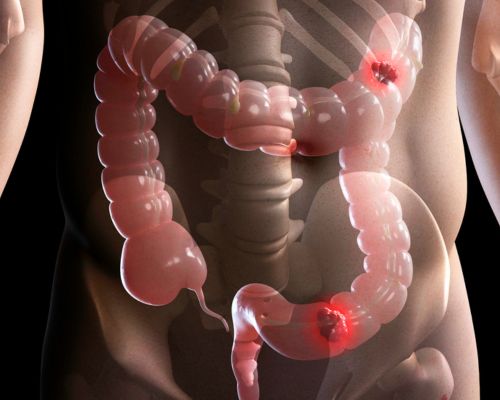Little-known diseases of the digestive system
Your digestive health is vital. Discover rare and overlooked diseases that can impact your overall well-being.
Little-known diseases of the digestive system
Your digestive health is vital. Discover rare and overlooked diseases that can impact your overall well-being.

While most people are familiar with common digestive conditions like irritable bowel syndrome (IBS) or acid reflux, there are also rare and lesser-known diseases of the digestive system that can be just as impactful. Approximately 8% of Australians are living with a rare disease, some of which are related to digestive health.
Understanding these diseases and recognising their symptoms early on can help manage and prevent complications in the future. Let’s dive deeper into some of these lesser-known digestive diseases that could affect you or someone you know.
While most people are familiar with common digestive conditions like irritable bowel syndrome (IBS) or acid reflux, there are also rare and lesser-known diseases of the digestive system that can be just as impactful. Approximately 8% of Australians are living with a rare disease, some of which are related to digestive health.
Understanding these diseases and recognising their symptoms early on can help manage and prevent complications in the future. Let’s dive deeper into some of these lesser-known digestive diseases that could affect you or someone you know.

Lesser-known digestive diseases
Achalasia
Achalasia is a condition where the muscles in the lower part of the oesophagus fail to relax, making it difficult to swallow food and liquids. This disorder can lead to severe discomfort and regurgitation.
Intestinal Pseudo-Obstruction
This digestive condition occurs when the digestive muscles do not work properly, mimicking the symptoms of a bowel obstruction. It can lead to bloating and severe abdominal pain, often without a physical blockage.
Microscopic Colitis
Microscopic colitis causes inflammation of the large intestine, leading to chronic diarrhoea, weight loss, and abdominal discomfort. This condition is difficult to diagnose and often requires a biopsy to confirm.
Gastroparesis
This is a condition where the stomach cannot empty its contents properly, resulting in nausea, vomiting, bloating, and early satiety. It is commonly associated with diabetes but can also occur due to other factors.

Achalasia
Achalasia is a condition where the muscles in the lower part of the oesophagus fail to relax, making it difficult to swallow food and liquids. This disorder can lead to severe discomfort and regurgitation.
Intestinal Pseudo-Obstruction
This digestive condition occurs when the digestive muscles do not work properly, mimicking the symptoms of a bowel obstruction. It can lead to bloating and severe abdominal pain, often without a physical blockage.
Microscopic Colitis
Microscopic colitis causes inflammation of the large intestine, leading to chronic diarrhoea, weight loss, and abdominal discomfort. This condition is difficult to diagnose and often requires a biopsy to confirm.
Gastroparesis
This is a condition where the stomach cannot empty its contents properly, resulting in nausea, vomiting, bloating, and early satiety. It is commonly associated with diabetes but can also occur due to other factors.


Symptoms to watch out for
If you experience any of the following symptoms, it could be an indication of a rare digestive disease:
- Difficulty swallowing: This particular symptom may be a telltale sign of a condition like achalasia or eosinophilic oesophagitis.
- Persistent abdominal pain: This may be a symptom of digestive issues, including microscopic colitis or intestinal pseudo-obstruction.
- Chronic diarrhoea or constipation: Long-term changes in bowel habits may signal diseases like microscopic colitis or gastroparesis.
- Unexplained weight loss: This could be related to several digestive conditions, including gastroparesis or eosinophilic oesophagitis.
- Nausea or vomiting: Chronic nausea or frequent vomiting may be a symptom of gastroparesis or other types of digestive disorders.
If you are experiencing any of these symptoms, it is important to consult a healthcare provider to explore potential underlying causes.
Symptoms to watch out for
If you experience any of the following symptoms, it could be an indication of a rare digestive disease:
- Difficulty swallowing: This particular symptom may be a telltale sign of a condition like achalasia or eosinophilic oesophagitis.
- Persistent abdominal pain: This may be a symptom of digestive issues, including microscopic colitis or intestinal pseudo-obstruction.
- Chronic diarrhoea or constipation: Long-term changes in bowel habits may signal diseases like microscopic colitis or gastroparesis.
- Unexplained weight loss: This could be related to several digestive conditions, including gastroparesis or eosinophilic oesophagitis.
- Nausea or vomiting: Chronic nausea or frequent vomiting may be a symptom of gastroparesis or other types of digestive disorders.
If you are experiencing any of these symptoms, it is important to consult a healthcare provider to explore potential underlying causes.

Causes and risk factors
While the exact causes of many rare diseases of the digestive system are still being researched, several common factors may contribute to the development of these conditions:
- Genetic predispositions: Some digestive diseases have a hereditary component, meaning they may run in families.
- Autoimmune responses: Conditions like eosinophilic oesophagitis are often linked to immune system dysfunction.
- Infections: Certain infections can cause lasting digestive issues, which may develop into chronic conditions.
- Environmental factors: Diet, stress, and allergens can all contribute to the onset of rare digestive diseases.
Understanding these causes and risk factors can help identify potential problems early and take proactive measures for management.

Causes and risk factors
While the exact causes of many rare diseases of the digestive system are still being researched, several common factors may contribute to the development of these conditions:
- Genetic predispositions: Some digestive diseases have a hereditary component, meaning they may run in families.
- Autoimmune responses: Conditions like eosinophilic oesophagitis are often linked to immune system dysfunction.
- Infections: Certain infections can cause lasting digestive issues, which may develop into chronic conditions.
- Environmental factors: Diet, stress, and allergens can all contribute to the onset of rare digestive diseases.
Understanding these causes and risk factors can help identify potential problems early and take proactive measures for management.


Why early diagnosis is crucial
Early diagnosis of rare diseases of the digestive system can be crucial in preventing progression to more severe complications. Timely intervention allows for better management, reduces the risk of long-term damage, and significantly improves your quality of life. In many cases, treatment options can provide relief and improve digestive health.
Also, early diagnosis can help reduce healthcare costs by minimising the need for emergency care or surgery. Consulting with a healthcare professional as soon as possible is important for your health and well-being.
Why early diagnosis is crucial
Early diagnosis of rare diseases of the digestive system can be crucial in preventing progression to more severe complications. Timely intervention allows for better management, reduces the risk of long-term damage, and significantly improves your quality of life. In many cases, treatment options can provide relief and improve digestive health.
Also, early diagnosis can help reduce healthcare costs by minimising the need for emergency care or surgery. Consulting with a healthcare professional as soon as possible is important for your health and well-being.

Prioritise your digestive health today
If you’re experiencing unexplained digestive symptoms like difficulty swallowing, persistent abdominal pain, or chronic diarrhoea, take action. Rare digestive diseases can be overlooked without proper care and attention, but a specialist can help uncover the underlying causes and provide a clear path toward better health.
Consulting a gastroenterologist will offer you personalised guidance to manage your symptoms, prevent further complications, and improve your quality of life. Don’t wait—early intervention can make all the difference in managing rare gastrointestinal conditions.

Prioritise your digestive health today
If you’re experiencing unexplained digestive symptoms like difficulty swallowing, persistent abdominal pain, or chronic diarrhoea, take action. Rare digestive diseases can be overlooked without proper care and attention, but a specialist can help uncover the underlying causes and provide a clear path toward better health.
Consulting a gastroenterologist will offer you personalised guidance to manage your symptoms, prevent further complications, and improve your quality of life. Don’t wait—early intervention can make all the difference in managing rare gastrointestinal conditions.

FAQs
How can I tell if my symptoms are serious?
If your symptoms are persistent, worsening, or accompanied by other concerning signs such as unexplained weight loss or blood in your stool or vomit, it’s important to seek medical attention promptly.
Are rare digestive diseases treatable?
While treatment options vary depending on the specific condition, many rare digestive diseases can be managed with medication, dietary changes, and in some cases, surgery. Early diagnosis often leads to better outcomes.
What is the long-term outlook for someone with a rare digestive disease?
The long-term outlook for someone with a rare digestive disease depends on the specific condition, how early it is diagnosed, and how effectively it is managed. With appropriate treatment and lifestyle adjustments, many individuals can live comfortably and manage their symptoms, though some conditions may require lifelong management.
Can lifestyle changes help prevent these conditions?
While some diseases of the digestive system have genetic or environmental causes that are beyond control, maintaining a healthy lifestyle with proper diet, stress management, and regular check-ups can help reduce the risk of digestive issues.
